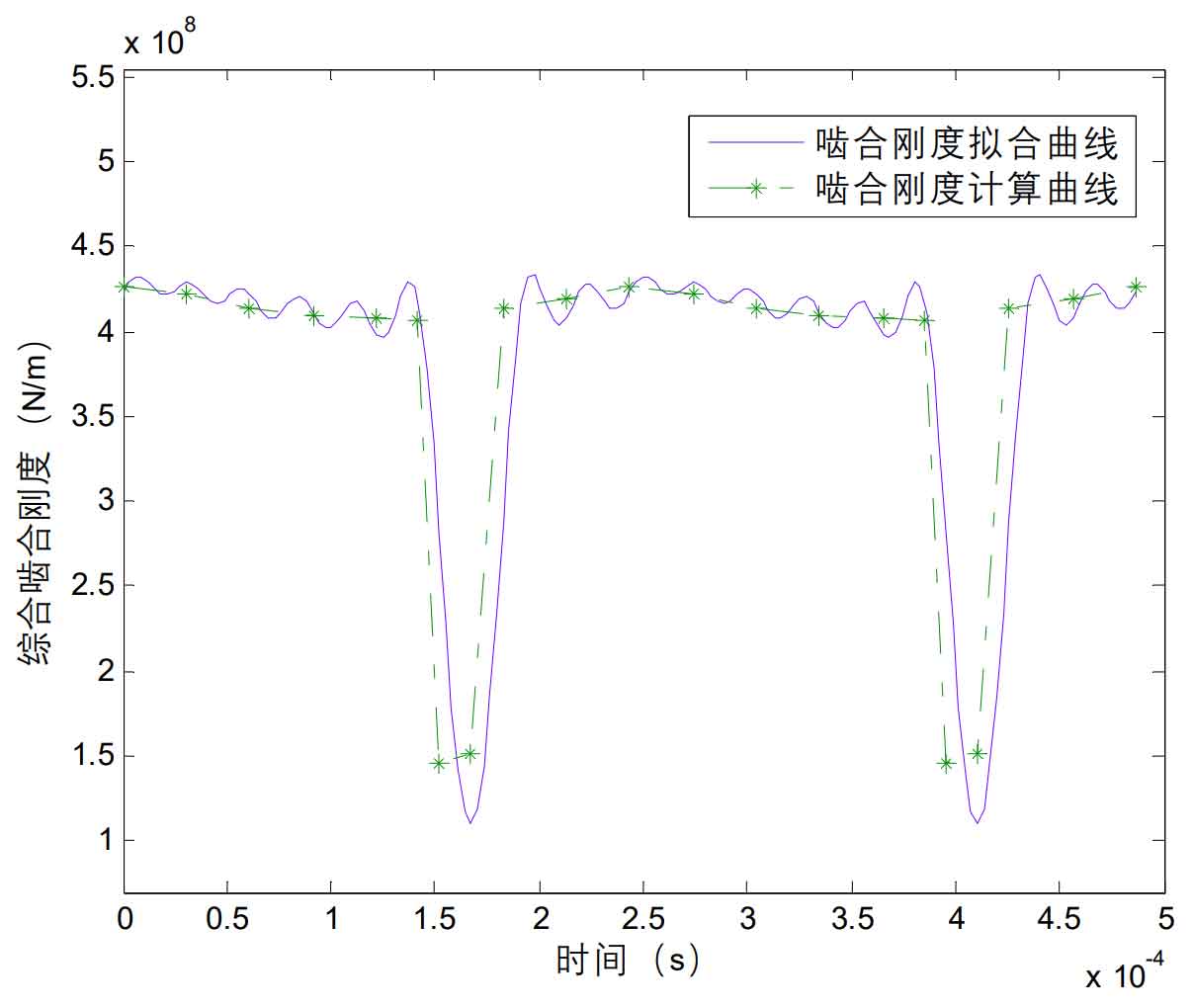The comprehensive meshing stiffness of spiral bevel gear teeth refers to the comprehensive effect of each pair of teeth participating in meshing in the whole meshing process. The contact finite element method is used to solve the deformation and stress of multiple pairs of teeth during simultaneous meshing, so as to directly obtain the comprehensive meshing stiffness. The meshing stiffness of spiral bevel gear changes periodically. Therefore, divide the meshing cycle into n segments and calculate the comprehensive meshing stiffness ki (I = 1,2,3…, n) at each time point. Then Fourier transform is used to convert a series of discrete values ki into the superposition of sine and cosine of different frequencies, so as to obtain the change curve of comprehensive meshing stiffness of spiral bevel gear.
Counter module M = 6mm, number of pinion teeth Z1 = 15, number of big gear teeth Z2 = 46, tooth width b = 44mm, pressure angle α = 20 ° and mid point helix angle β= The comprehensive meshing stiffness of spiral bevel gear with 35 ° is analyzed. Here, each cycle T is divided into 10 segments on average, and two meshing cycles are taken, and then the value of Ki at each i t time is calculated. Figure 3.2 shows the change curve of comprehensive meshing stiffness of spiral bevel gear transmission in two meshing cycles.
This series of discrete stiffness values can be Fourier transformed by MATLAB, and the expression of stiffness curve can be obtained. The stiffness is reduced to the following form:
Where km is the average value of time-varying meshing stiffness of spiral bevel gear, AI is the i-order harmonic amplitude value of time-varying meshing stiffness of spiral bevel gear, Φ I is the initial phase of time-varying meshing stiffness of spiral bevel gear.


